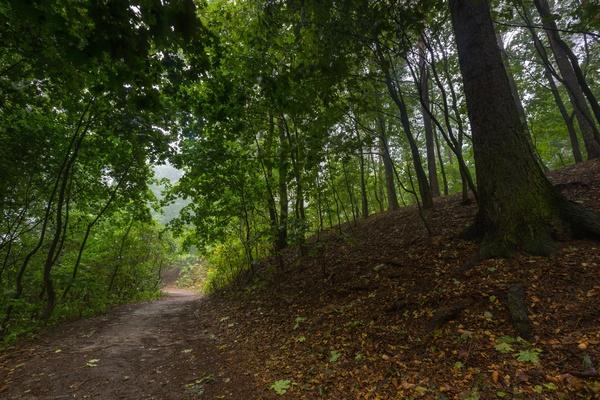I'm in New York City and a storm just finished. Though the forecast had only shown a slight chance of rain a few hours earlier, suddenly there were flash flood warnings and the Yankees went ahead and postponed their game.
After it had passed, I immediately wanted to go outside. One of my favorite smells is the air after a storm. It is a smell so profound and distinct that a word had to be invented for it - and so it was In 1964, when chemists Isabel Bear and R.G. Thomas coined "petrichor" from the Greek "petros" (stone) and "ichor", the blood of the gods.
But in New York City, the smell is different than in rural Pennsylvania. You may be thinking to yourself, that's because of the garbage and hobo urine, which is certainly fair, but it is also different for chemistry reasons. Petrichor, the smell I associate with rural Pennsylvania, is because there is different chemistry in the woods than we get in cities. Though our noses get dismissed as amateurs compared to some animals, there is one compound where we do really well; we can smell geosmin, a chemical (C12H22O) released by dead microbes (commonly Streptomyces bacteria) and which causes that earthy smell, at a level of 5 parts per trillion. That's right, trillion. That is so trace that even endocrine disruption psychic Pete Myers, anti-everything activist Zen Honeycutt of Moms Across America, and homeopaths would have a hard time taking it seriously.

Credit: PubChem Open Chemistry Database
I smell dead bacteria
To put that in context, a shark can smell blood at one part per million. That means human noses are 200,000X more sensitive to geosmin, which is also the source of the earthy taste in some vegetables, than a shark is to blood. No wonder I hate the taste of beets, my nose is probably better than yours.
What is this evolutionary relic? Why do we smell dead bacteria and the products of their corpses so well? It's all speculation at this point and there are lots of questions in biology like that, such as why do mitochondria in most of our cells have their own very specific, very small genome still being reproduced inside our own big genome? It may be that we have been given a mechanism to smell water really, really well because while it's always been essential, it may have been harder to find unless you were born near a river or conquered whomever was.
So why does the air after rain smell so different in cities, more "clean" like chlorine and less like earth? There are not a lot of dead soil bacteria in cities, instead there is more ozone.
O3 credit: PubChem.
Humans are really sensitive about ozone as well, some can smell it at a concentration of 10 parts per billion, probably because it is dangerous at high levels.
Take that, Shark Week.




